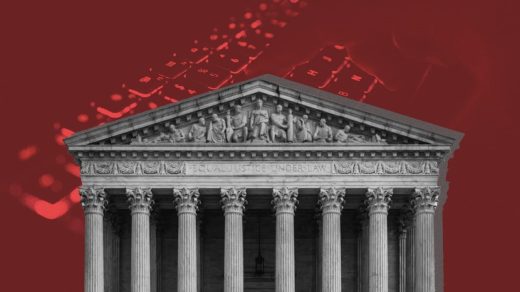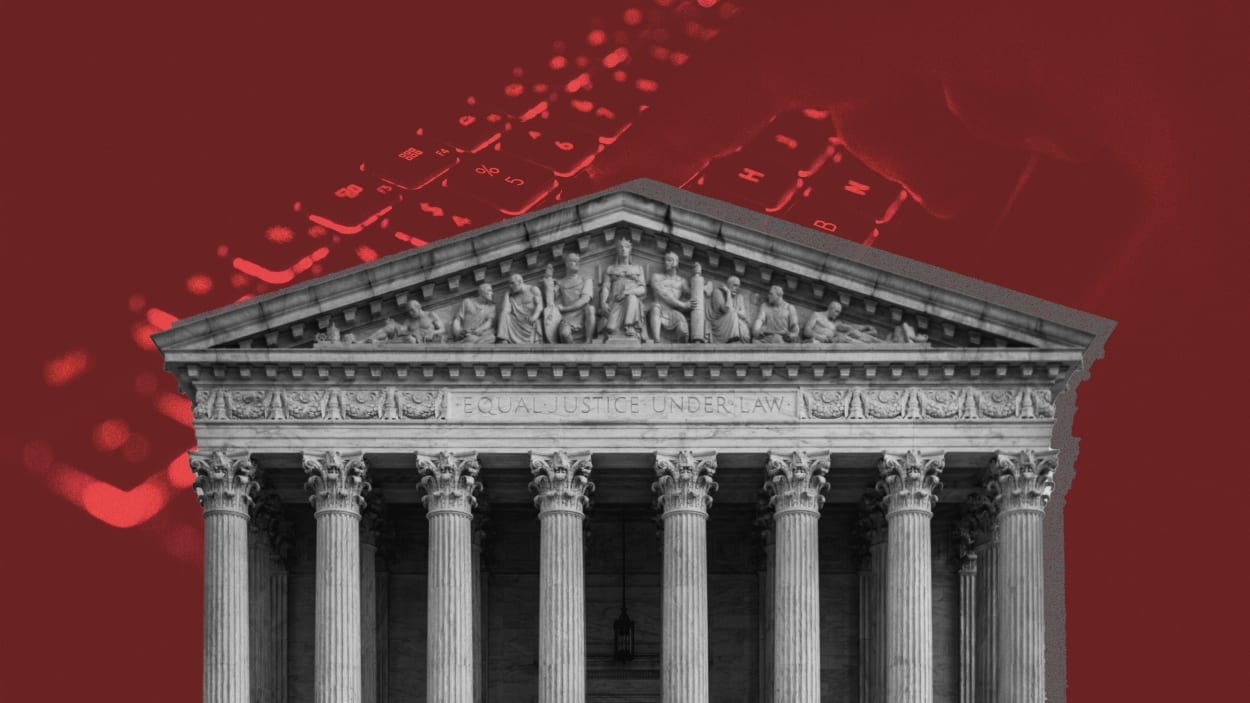Supreme Court guts protections for cyberstalking victims
The Supreme Court ruled Tuesday that in order to find someone guilty of making a “true threat” courts must first determine that the person recklessly disregarded the fact that their words might be perceived as threats. Experts fear the decision will create new hurdles for victims of cyberstalking by requiring them to first prove that their stalkers understand the consequences of their actions.
“The Supreme Court has just decreed that stalking is free speech protected by the First Amendment if the stalker genuinely believes his actions are non-threatening,” tweeted Mary Anne Franks, a professor at George Washington Law School and president of the nonprofit Cyber Civil Rights Initiative. “That is, the more deluded the stalker, the more protected the stalking.”
The case, Counterman v. Colorado, concerns a man named Billy Raymond Counterman, who was convicted under a Colorado anti-stalking law, after he sent a barrage of threatening Facebook messages to a woman he’d never met. The Colorado law didn’t require the court to consider Counterman’s mental state when he sent the messages. It only had to consider his behavior and how it was objectively received, that is, whether he repeatedly contacted, followed, or surveilled his target in a way that would cause a “reasonable person” distress.
Counterman was found guilty under that statute, but he appealed his conviction, arguing that his statements were protected by the First Amendment and did not constitute “true threats,” a category of speech that falls outside the bounds of the First Amendment, because it wasn’t his intention to threaten his target. In its decision, the Supreme Court overwhelmingly sided with Counterman.
“The State prosecuted Counterman in accordance with an objective standard and did not have to show any awareness on Counterman’s part of his statements’ threatening character,” the majority opinion, written by liberal Justice Elena Kagan, reads. “That is a violation of the First Amendment.”
Kagan’s opinion acknowledges there is a trade-off in this decision, but argues that the trade-off is necessary to protect free speech. “[I]t makes prosecution of otherwise proscribable, and often dangerous, communications harder,” Kagan writes. “But a subjective standard is still required for true threats, lest prosecutions chill too much protected, non-threatening expression.”
The only dissents in the case came from conservative justices Amy Coney Barrett and Clarence Thomas. In their dissent, they grapple with the potential consequences of this ruling and the impact it may have on victims of harassment and stalking, as well as efforts to impose restraining orders on other people who make violent threats.
“Imagine someone who threatens to bomb an airport. The speaker might well end up barred from the location in question—for good reason,” Justice Barrett writes. “Yet after today, such orders cannot be obtained without proof—not necessarily easy to secure—that the person who issued the threat anticipated that it would elicit fear.”
Justice Barrett’s dissent also reckons with the concerns—shared by experts like Franks of George Washington University, who submitted an amicus brief in the case—that stalkers’ often delusional nature makes them more dangerous, not less. “A delusional speaker may lack awareness of the threatening nature of her speech; a devious speaker may strategically disclaim such awareness; and a lucky speaker may leave behind no evidence of mental state for the government to use against her. The Court’s decision thus sweeps much further than it lets on,” the dissent reads.
Digital rights and free speech advocates, including groups like the Electronic Frontier Foundation and the American Civil Liberties Union, had previously urged the court to side with Counterman. They argued that if anyone can be found guilty of making a threat based on how their speech is received, not how it was intended, that could have a chilling effect, particularly online, where people have little control over where their messages are shared.
While the court sided with Counterman, his particular case will now be remanded to the lower courts, where the state will now have to prove that he was, in fact, reckless in sending the messages in question.
(13)



